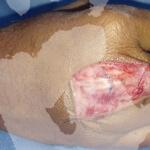Preparing for Hand Surgery: Ensuring a Seamless Experience
Preparation for hand surgery is a vital aspect to ensure a smooth and successful experience. By taking the following steps, you can enhance your confidence and comfort before, during, and after the procedure.
Consultation and Open Dialogue:
Initiate a consultation with a qualified hand surgeon to discuss your condition, treatment options, and the recommended surgical procedure. This is an opportunity for open dialogue, enabling you to ask questions, express concerns, and gain a comprehensive understanding of the procedure’s details and potential outcomes.
Thorough Medical Evaluation:
Your hand surgeon will meticulously review your medical history and assess your overall well-being, considering any risk factors that may impact the surgery or recovery. Be prepared to provide a complete medical history, including medications, allergies, and previous surgeries.
Follow Preoperative Guidelines:
Adhere to specific preoperative instructions provided by your surgeon, including fasting guidelines, medication restrictions (such as blood thinners), and instructions for showering and skin preparation.
Transportation Arrangements:
Arrange for transportation to and from the surgical facility, as hand surgery may involve anesthesia, prohibiting you from driving immediately after the procedure.
Home Preparation for Recovery:
Prepare your home for the recovery period, ensuring a comfortable and clean space with easy access to essentials like medications, water, and snacks.
Assistance Planning:
Depending on the extent of the surgery, plan for assistance with daily tasks such as dressing, meal preparation, and household chores. Coordinate with someone to help you if needed.
Stocking Up on Postoperative Supplies:
Ensure you have the necessary postoperative care supplies, including wound dressings, over-the-counter pain medications (if approved by your surgeon), and any prescribed medications.
Prioritizing Nutrition and Hydration:
Maintain a well-rounded and nutritious diet leading up to the surgery, and stay adequately hydrated, supporting your body’s healing process.
Lifestyle Adjustments:
Consider quitting or reducing smoking before surgery, as it can impact healing. Additionally, avoid alcohol in the days leading up to the procedure to prevent interference with anesthesia and recovery.
Effective Communication:
Keep your surgeon informed of any health changes or signs of illness before the surgery. If necessary, surgery may be rescheduled to ensure optimal health.
Planning for Recovery Timelines:
Discuss the expected recovery timeline with your surgeon, understanding limitations and restrictions. Make arrangements to accommodate these requirements during the recovery period.
Emotional Preparedness:
Acknowledge and address emotions like anxiety and stress associated with surgery. Practice relaxation techniques, engage in activities that bring joy, and seek support from friends, family, or a counselor if needed.





